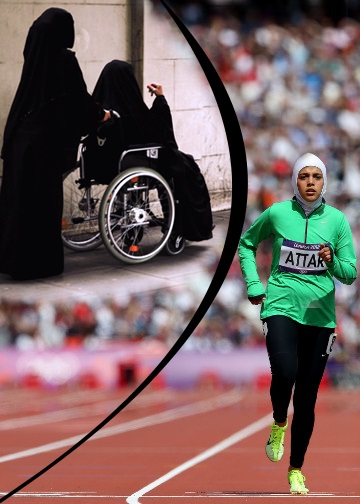Saudi women still excluded from games celebrating inclusion
August 19, 2015
By Emily Pinderski
The Special Olympics World Games commenced in style on July 25 in Los Angeles. For the next week, athletes from all over the world will compete for their country, but also for the important goal of personal achievement.
As demonstrated by Special Olympics, anyone can be an athlete. Every event is a beacon of inclusion. These athletes showcase athletic prowess and sportsmanship that surpass any disabilities they have. The mission of Special Olympics seeks to allow eligible athletes to, “develop physical fitness” and “demonstrate courage,” among other expressions of the human spirit.
The doctrine of inclusiveness makes the Special Olympics a truly unique event. The organization believes that people with disabilities can become full members of society by developing the necessary skills through training and competitions. Sports are an opportunity for a person to grow physically, mentally, and emotionally, and this personal journey can assist in a smoother transition into society.
The best example of Special Olympics’ commitment to discouraging exclusion can be found in the Special Olympics General Rules. Article 1, section 3(E) states that “Special Olympics must transcend all boundaries of race, gender, religion, national origin, geography and political philosophy and offer sports training and competition opportunities to all eligible persons of intellectual disabilities in accordance with uniform worldwide standards.”
Thousands have flocked to Los Angeles in anticipation of competing. Yet, in the games that celebrate opportunity and inclusion, there is one group that is missing. Of the 23 athletes representing the Kingdom of Saudi Arabia, not one of them is female.
The Saudi government bans women and girls from competing in sports domestically and abroad. Girls are forbidden from participating in physical education classes. There are few health clubs or gyms for women, which restricts their ability to exercise daily. The sedentary lifestyle that results from the ban poses great danger to the physical health of all Saudi women. A life without exercise increases the likelihood of obesity and its associated risks of high blood pressure, Type 2 diabetes, and heart disease. Not only does the ban induce physical harm, it restricts the way in which women and girls can express themselves emotionally and develop mentally. If sports are indeed a fundamental human right, then the ban constitutes a violation.
As the leading international organization that advocates for universal opportunity, Special Olympics can help facilitate the inclusion of another group that has been hidden away from the public eye. If they made this issue a priority, it would open the door for women in sport across the world. Nawal El-Moutawakel, the Moroccan Olympic Champion in the 400m race said “Women’s participation in sport is a reflection of the position of women in society in general. The entrance of women into these spaces often coincides with women’s entrance and active participation in civil society and politics.” If Special Olympics is about building confidence and providing people with necessary life skills, then Saudi women should be afforded the same rights and opportunities.
Among the ways Special Olympics can encourage the inclusion of Saudi women and girls into international sports, one mechanism that can help is the use of a quota. Article 3, section 3.06 of the Special Olympics General Rules says, “SOI has the sole authority to establish binding quota governing the overall size and composition of delegations of athletes, coaches and other persons to be sent by Accredited Programs to the World Games.” SOI has the authority to insist that Saudi females be included in the delegations, which is one way to encourage participation and end the government’s ban on women in sports.
Special Olympics should take it upon itself to help reverse the Saudi government’s ban and allow Saudi females to achieve their highest personal goals, a form of success formerly denied to them. In addition, Special Olympics should encourage other international sports organizations to promote inclusion and the full participation of women in all sports at all levels of competition. Only by lifting the ban will all Saudi females be able to partake in international sports, which is why Special Olympics should aim to end this blatant discrimination.
As the World Games continue, the world will join in the celebration of athleticism and personal triumph of the courageous athletes. While so many people are finally afforded the chance to compete, Saudi women and girls remain sidelined. The Special Olympics have altered the landscape of international athletics for the better, but not everyone is included. It is time to change the game, one more time.
Emily Pinderski is a campaign coordinator for the No Women No Play campaign



Comments are closed.